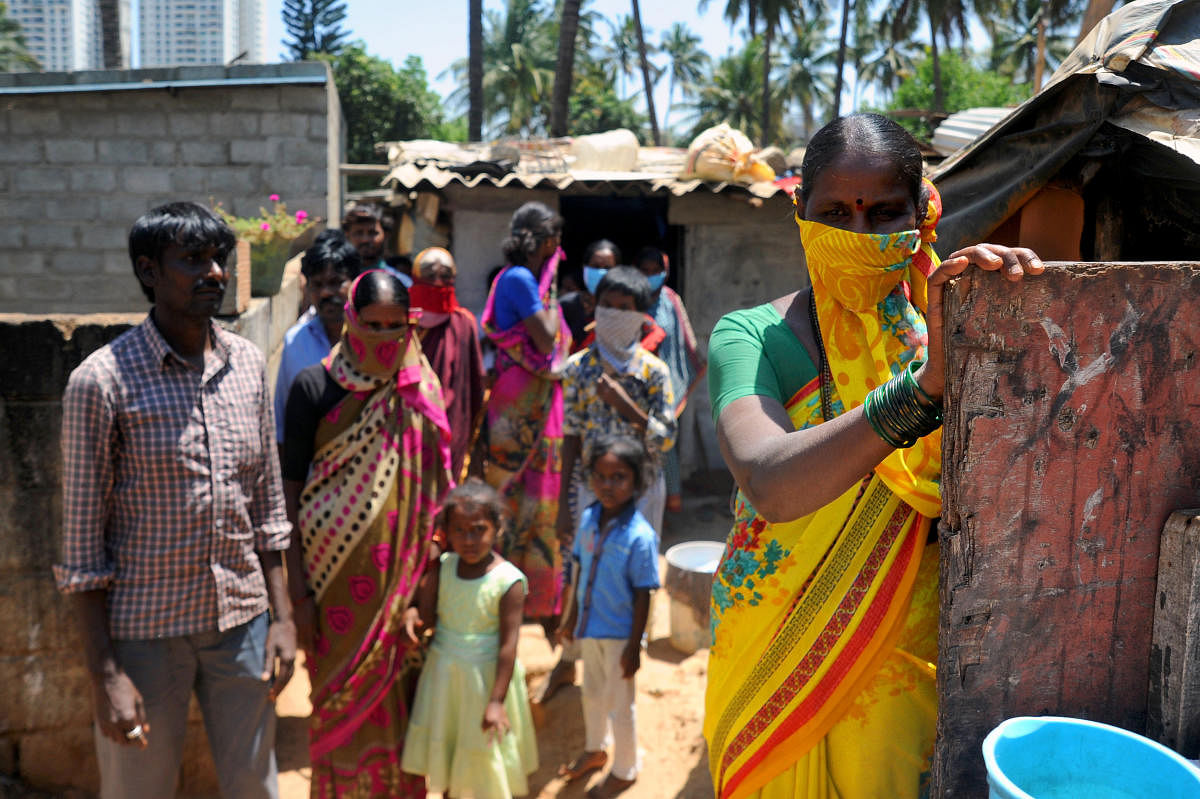
Hit hard by the COVID-19 lockdown and forced indoors in densely populated makeshift sheds, migrant labourers in Bengaluru stare at their bleakest future this World Labour Day. A citizen’s collective has sought a lockdown exit plan that minimises economic and social distress for this acutely vulnerable group.
Citing the surge in positive cases in a congested workers’ cluster in Hongasandra, the collective, Naavu Bharateeyaru, has highlighted the futility of social-distancing norms. “The lockdown seems to adversely affect people living in slums, all informal sector workers in several ways,” it noted.
During the lockdown, the collective said decisions to set up quarantine centres or create containment zones had to be made on sound basis, with full participation of the affected persons and with minimum inconveniences. “However, the extreme difficulties that people in containment zones such as Padarayanpura faced, means these basic principles have not been followed by the government.”
Migrant Worker Action Plan
Rejecting the Centre’s standard operating procedure for migrants, the collective has demanded a Migrant Worker Action Plan, with a comprehensive focus on all their needs.
“Those migrant workers who chose to go back home must be allowed to go and supported; those who chose to stay back must be given support to pursue their livelihoods of choice.”
The lockdown exit plan should be based on sound public health guidelines without violating human rights. But before finalising the exit strategy, the collective said, “the government must hold wide consultations with civil society, especially those representing marginal communities.”
To plan and activate the decisions, a committee of multi-disciplinary experts who work on epidemics and marginalised communities must be formed. “The government should speak to people and ask what is it they require, map every vulnerable section and map out specific strategies for each of them,” said Vinay Sreenivasa from the collective.
The government, he said, should support both the National Food Security Act (NFSA) and non-NFSA beneficiaries with 10kg of grain, 1.5 kg of dal and 800 gm edible oil per person per month, for the next six months (until September) at the very least.
The critical need is for a food security plan that addresses how all families can access nutritious food, including meat, milk, eggs and vegetables over the next few months. Another key need is a sound health strategy, in tune with the World Health Organisation’s strategic preparedness and response plan for COVID-19.